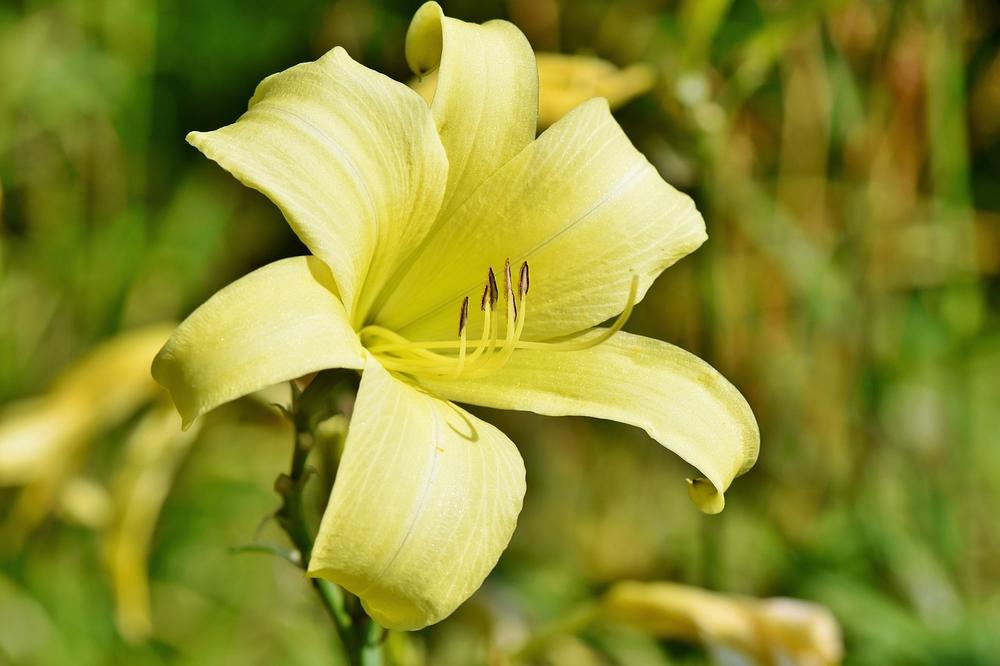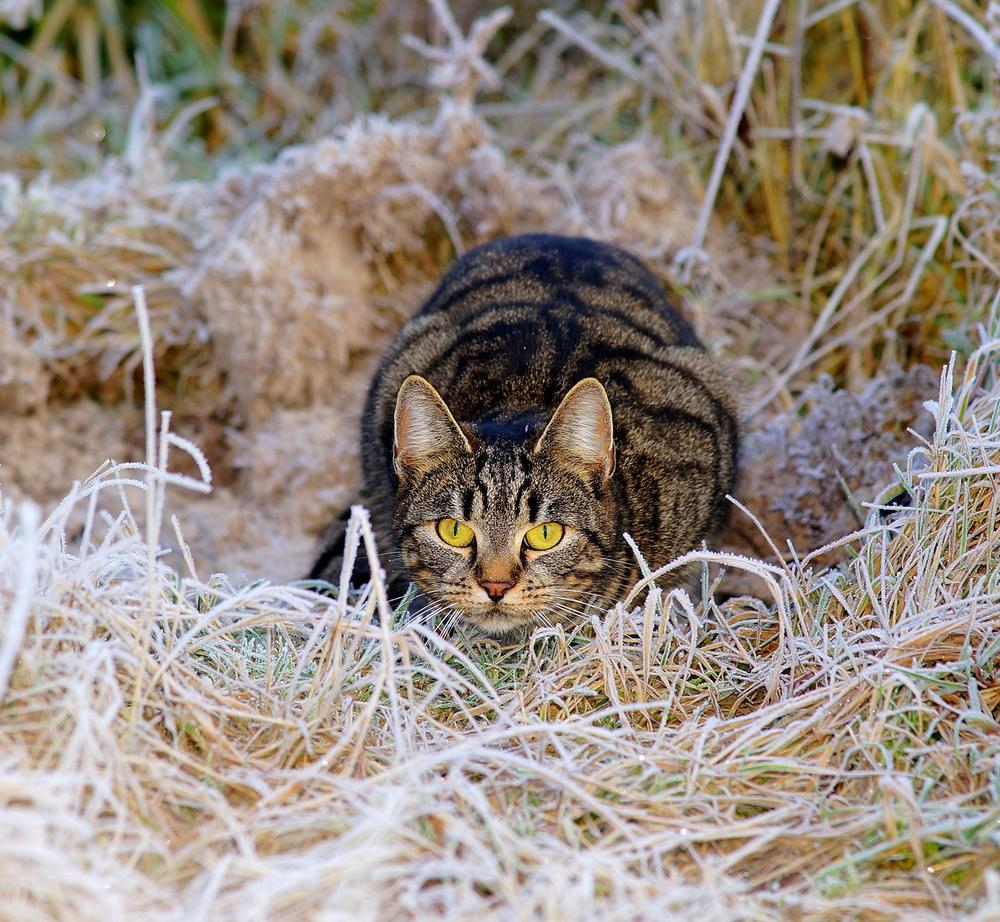Are Lilies Toxic for Cats?

Cat owners, listen up.
We need to have a serious chat about lilies.
You know, those beautiful flowers that brighten up any room? 😄
Well, what if I told you they could be secretly plotting the downfall of your beloved feline?
Imagine the horror of realizing your innocent flower arrangement could harm your precious fur baby.
It's a nightmare waiting to happen.
But fear not, my concerned cat lovers, in this I Care for Cats guide I'll unveil the truth about lilies and their potential toxicity.
So, let's dive in and put an end to this floral fiasco.
Ready?
Are All Lilies Poisonous to Cats?
Yes, all types of lilies are toxic to cats, posing a serious threat to their health. Despite not knowing the exact harmful substance, you should keep lilies away from our beloved feline companions to ensure their safety and well-being.
Attention cat lovers - I need to talk to you about the danger lilies pose to your feline friends.
Now, I get it, lilies are stunning and captivating, adding a touch of sophistication to any space. But let me give it to you straight:
All lilies are toxic to cats. Yeah, you heard me right.
It doesn't matter if it's those enchanting petals, delicate stems, vibrant leaves, or even just the pollen alone - it's all bad news for your beloved furry companion.

And here's what makes it terrifying:
We still haven't pinned down the exact substance within lilies that harms cats. So, it's wise to assume that every single lily out there is a threat.
It's mind-boggling, I know, but our cherished cats are the only ones who suffer from these noxious toxins.
Just thinking about it breaks my heart.
So please, I'm begging you, if you cherish your cuddly kitties as much as I do, keep lilies far away from them at all costs.
Make their safety your utmost priority. Together, we can create a sanctuary of happiness and ensure our homes remain free of dangerous lilies.
Main points I'll expand upon further down this article:
- Lilies, like Asiatic lilies and daylilies, can be harmful to cats.
- Peace lilies contain insoluble calcium oxalate crystals that cause oral pain.
- Lilies pose a significant threat to cats and can be potentially fatal.
- Minimal exposure to lilies can result in severe and irreversible kidney failure.
- Some cats are more susceptible to lily toxicity than others.
- Lily poisoning can lead to difficulty breathing and signs of toxicity within hours.
- Death from kidney failure can occur within 72 hours of lily ingestion.
- Surviving cats require regular checkups and bloodwork to monitor kidney recovery.
- Prompt veterinary care is necessary if lily ingestion is suspected.
- To protect your cat, avoid bringing any kind of lilies into your home or yard.
But wait, there's more you need to know about the specific types of lilies and their potential harm to your beloved feline companions...
Types of Lilies Poisonous to Cats
True lilies can be highly toxic to cats
Did you know that certain types of lilies can seriously harm your adorable kitties?
Lilies like Easter lilies, tiger lilies, Asiatic lilies, and others are all true lilies, and they can actually be very dangerous for your feline friends.
If your curious cat eats any part of a true lily, it can severely damage their kidneys and even cause kidney failure or death.
So, if you have cats at home, make sure to keep these pretty flowers out of their reach.
Beware of insoluble calcium oxalate crystals
But wait!
There's more.
Peace lilies, while not true lilies themselves, contain nasty little crystals that can cause more trouble for your fur babies.
If your cat decides to nibble on peace lilies, they might experience mouth pain, drooling, vomiting, or diarrhea. Not a pleasant experience for anyone involved, right?
Watch out for lilies with similar flowers
Oh, and here's something else to be cautious about:

Daylilies. Daylilies may look like true lilies, but their leaves are quite different.
Although not as toxic as true lilies and usually causing just minor tummy troubles, it's still important to keep an eye on your pets near these plants.
And let's not forget about peace lilies—they may not poison your cats, but chewing on them can immediately irritate their bodies.
So, whether it's true lilies, lily-like plants, or peace lilies, make sure to be careful and keep your beloved pets safe.
And remember, while there are several types of lilies that can be toxic to cats, it's important to educate yourself about all potential dangers.
If you're curious about the potential toxicity of marigolds and how to ensure the safety of your beloved pets, I invite you to explore my in-depth guide, Are Marigolds Poisonous to Cats.
In this article, I provide helpful information on determining if marigolds pose any risks to your feline friends and steps you can take to protect them.
Stay informed and keep your cats safe!
Lilies' Renal Toxicity: A Dangerous Threat to Cats
Listen up, feline lovers.
I've got one thing to say:
Lilies and cats do not mix. Lilies are dangerous, plain and simple.
The truth is, lilies can seriously harm your furry friend's kidneys.
And trust me, you don't want that.
Lilies go straight for the cats' vulnerable kidney system and can cause kidney failure before you can even blink.
Now, here's the harsh reality:
Cats are way more susceptible to lily toxicity than dogs.
And let me make this abundantly clear:

A nibble on a lily leaf or petal, pollen licking, or drinking water from a vase with lilies is bad news.
Here's the bottom line: lilies can bring your cat to death's door.
You don't want that.
Treatment is brutal and expensive.
Your emotions and bank account will take a hit.
And here's the saddest part: some cats won't recover once they've been poisoned by lilies. It's heartbreaking and it happens fast.
Don't fool yourself into thinking that a little nibble won't hurt. Any amount of lilies can lead to fatal kidney failure in no time.
So listen up, folks.
Keep lilies far away from your cats. Don't underestimate these seemingly harmless flowers.
Your furry friend's life depends on it.
And let me tell you, the symptoms of lily poisoning in cats are just as terrifying as the potential outcome...
Symptoms and Treatment of Lily Poisoning
Lily poisoning in cats is a serious condition that can have severe consequences if not treated promptly. 😿
Here are some important things you should know about lily poisoning:
- Common symptoms include vomiting, diarrhea, excessive drooling, and loss of appetite. If you notice any of these signs, it's crucial to seek veterinary care immediately.
- Lily poisoning can lead to difficulty breathing and other toxicity signs appearing within 6-12 hours. Within 72 hours, it can progress to fatal kidney failure.
- Surviving cats require regular checkups and bloodwork to monitor kidney recovery. Monitoring renal values, electrolytes, and pancreatitis is essential, as delayed treatment often leads to irreversible kidney failure.
- Chewing peace lilies can also cause oral pain and swelling. It's crucial to be aware of any unusual behavior or discomfort in your cat.
- Prompt veterinary care is necessary to prevent irreversible renal damage, especially if treatment is delayed beyond 18 hours. Bringing the lily plant to the veterinarian will help identify the specific type involved for appropriate treatment.
There is no antidote for lily poisoning, but supportive care, such as inducing vomiting, administering activated charcoal, providing IV fluids, and monitoring kidney enzymes, can improve the cat's chances of survival.

Don't hesitate to reach out to your vet if you suspect lily poisoning in your cat.
And if you suspect your cat has ingested any part of a lily plant, seek immediate veterinary assistance... Remember, early intervention greatly increases the chances of preventing kidney damage.
I recommend contacting your veterinarian or ASPCA Animal Poison Control Center right away and consider bathing your cat at the vet's office to minimize contamination.
Don't delay seeking help - your cat's health depends on it...
What to Do if Your Cat Has Eaten a Lily
- Right away, get in touch with your vet or reach out to the ASPCA Animal Poison Control Center. Time is essential!
- Don't waste any time getting veterinary help and also call the Pet Poison Helpline.
- You should have your cat cleaned up at the vet's office to stop any further contamination. The professionals will know how to handle it safely.
- Don't make your cat vomit, as it can do more harm. Let the experts guide you on what to do.
- Make sure to tell your vet about lilies specifically. Give them all the details about the type of lily and whether your cat ate any parts, got pollen on them, or drank water from a vase with lilies.
- Be prepared for potential kidney damage. Acting early can greatly increase the chances of avoiding long-term problems.
- Keep a close eye on your cat for signs like throwing up, having diarrhea, losing their appetite, or being extremely tired. If these symptoms show up, contact your vet right away.
Act quickly when it comes to lilies and cats.
Now, you might be asking yourself, How can I effectively prevent my cat from accessing lilies?
Well, let me tell you, it's not as simple as just keeping them out of reach.
In the next section, we will delve into some practical tips and strategies that will help close the gap between your furry friend and these toxic flowers.
Stay tuned!
Keeping Your Cat Away From Lilies
Keeping your cat away from lilies is crucial for their wellbeing. 👩
You see, cats may show curiosity towards new plants, even if they usually avoid them altogether.
With their stealthy nature, you need to prevent access to rooms you don't want them in.
Surprisingly, 73% of cat owners are unaware of the toxic nature of lilies for their pets.

To protect your feline friend, here are some crucial points to consider:
- Avoid bringing any kind of lilies into your home or yard, especially Lilium spp., Hemerocallis spp., or Convallaria spp.
- Don't plant lilies in your garden either.
- Restrict their exposure to any form of lilies, including pot plants, cut flowers, and garden beds.
Yes, that means not even the water in a vase holding cut lilies should be accessible to your cat.
Preventing access to lilies is necessary to keep your fur baby safe.
And as I wrap up this section, I want to make sure that you have all the information you need to keep your feline friend safe and happy.
If you're someone who loves cats as much as I do, I assure you that my blog post Are Palms Toxic to Cats will provide the answers you seek.
It's always important to stay informed and take necessary precautions for the wellbeing of your beloved pet.
And that wraps up today's article.
If you wish to read more of my useful articles, I recommend you check out some of these: Are Stink Bugs Poisonous to Cats, Are Hyacinths Poisonous to Cats, Are Asparagus Ferns Toxic to Cats, Are Maidenhair Ferns Toxic to Cats, and Are Daffodils Poisonous to Cats
Talk soon,
-Sarah Davis